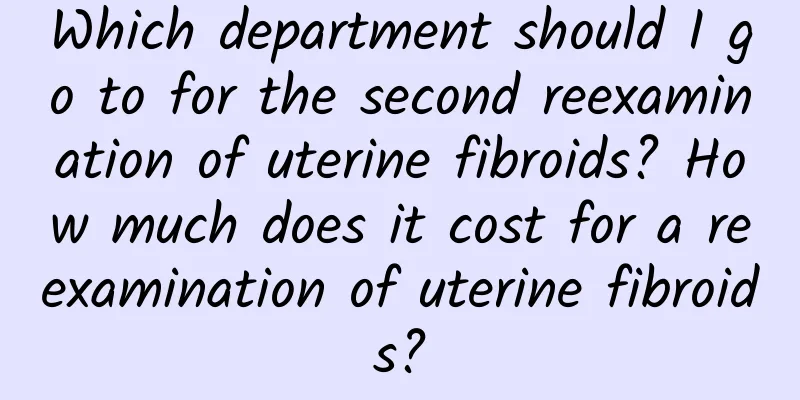Can uterine fibroids be cured?

|
The occurrence of uterine fibroids has a huge impact and harm on every female friend. Although it is a common benign tumor, if it is not discovered in time or if the doctor is not actively treated, other serious complications will occur. Therefore, timely examination and treatment are the most critical. So, can uterine fibroids be cured? Uterine fibroids are the most common benign tumors in the female reproductive organs. They are curable and generally have a good prognosis without leaving sequelae to the patient. If the patient has no obvious symptoms and no signs of malignant transformation, regular follow-up observation is required. The common clinical treatments for this disease are drug therapy and surgical treatment. Drug treatment: 1. Mifepristone: It is a progesterone antagonist. In recent years, it has been clinically tried to treat uterine fibroids. It can reduce the size of fibroids, but the fibroids often grow again after stopping the drug. 2. Danazol: used for preoperative medication or treatment of uterine fibroids that are not suitable for surgery. Uterine fibroids may grow larger after stopping the medication. Taking danazol can cause liver damage, and there may also be androgen-induced side effects (weight gain, acne, low voice, etc.). 3. Tamoxifen: It can inhibit the growth of fibroids. However, long-term use may cause some patients' uterine fibroids to grow larger, and even induce endometriosis and endometrial cancer, so it should be noted. Surgical treatment: Surgical treatment of uterine fibroids includes myomectomy and hysterectomy, which can be performed through the abdomen or vagina, or endoscopic surgery (hysteroscopy or laparoscopy). The choice of surgical procedure and surgical approach depends on factors such as the patient's age, whether she has fertility requirements, the size and location of the fibroids, and medical technology conditions. Women should go to the hospital for regular gynecological examinations to detect gynecological diseases in time. If uterine fibroids are found, necessary treatment should be carried out according to the condition. Generally speaking, patients with mild uterine fibroids should go to the hospital for a checkup once a month. If the uterine fibroids do not grow or grow slowly, they can go for a checkup every 3 to 6 months. |
<<: What diet is helpful for pelvic inflammatory disease
>>: Can chronic dysmenorrhea be cured?
Recommend
What are the methods used by hospitals to cure cervicitis? Hospitals often use two methods to treat cervicitis.
In our lives, many women are more concerned about...
Several important points to note about painless abortion
Painless abortion has become a relatively common ...
What's wrong with bleeding one week after period?
What's wrong with bleeding one week after per...
What are the serious consequences of endometrial tuberculosis?
The endometrium plays a very important role in wo...
Does Xihuang Capsule treat pelvic effusion?
Can Xihuang Capsule treat pelvic effusion? Xihuan...
Drinking mulberry leaves soaked in water causes abnormal leucorrhea
Drinking mulberry leaves soaked in water may caus...
What is the treatment for endometrial tuberculosis in a gynecological hospital?
Among reproductive system infectious diseases, en...
Experts tell you how to stay away from cervical erosion
As women's status improves, more and more peo...
How to treat female cervical erosion? Four common methods of treating cervical erosion
Cervical erosion is a relatively common chronic i...
Will cervical erosion recur after treatment with Lipu Knife? Advantages of Lipu Knife in treating cervical erosion
The harm caused by cervical erosion to female fri...
Four methods of examining pelvic fluid
Generally speaking, many women suffer from pelvic...
Brief analysis of the causes of dysmenorrhea in girls
When it comes to dysmenorrhea in girls, many fema...
What causes menstruation to come one week early?
What causes menstruation to come one week early? ...
What are the effects of medical abortion on the body? There are 4 major hazards
Medical abortion is a method of abortion that wom...
Is postmenopausal bleeding definitely cancerous?
Postmenopausal bleeding refers to vaginal bleedin...









